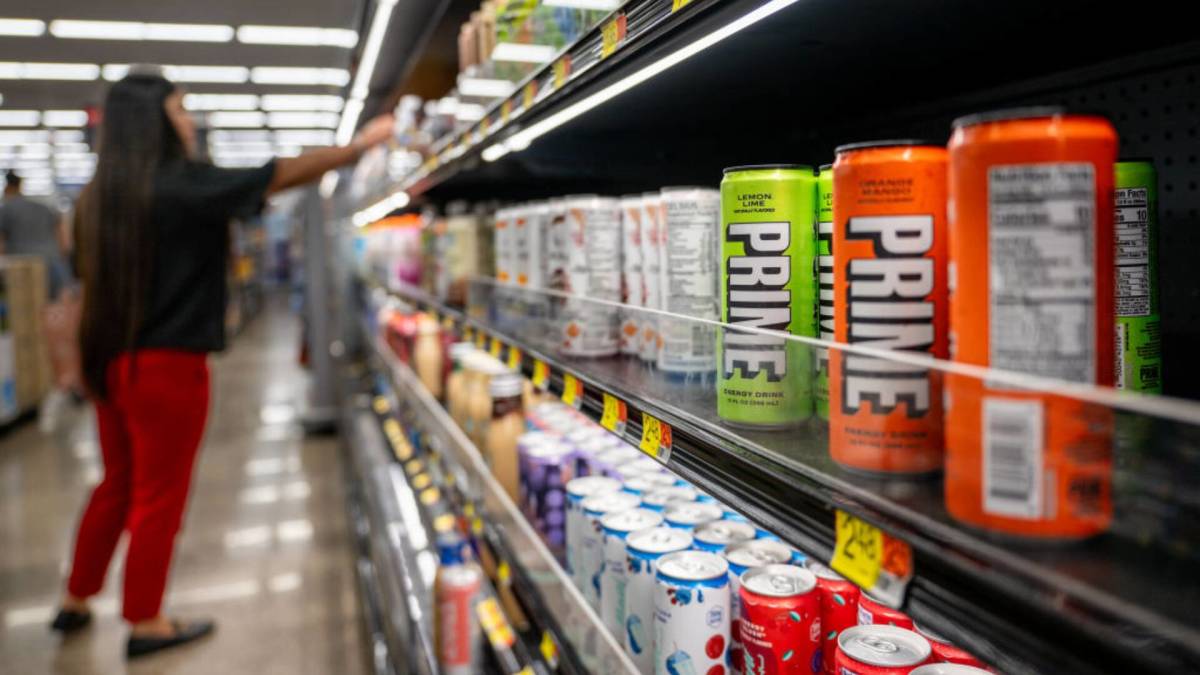In recent years, several health administrative agencies in the U.S., including the Department of Health and Human Services (HHS) and the Food and Drug Administration (FDA), have introduced new regulations to improve public health.
These include proposed measures including front-of-package nutrition labeling and removal of controversial ingredients such as Red Dye No. 3.
💵💰 Don’t miss the move: Subscribe to TheStreet’s free daily newsletter 💵💰
However, the renewed public health focus isn’t limited to the U.S. Governments around the world have made similar moves, introducing laws and bans on products and ingredients considered harmful, especially to children and teens.
The British government recently announced plans to ban the sale of high-caffeine energy drinks to individuals under the age of 16. This move intends to protect children’s physical and mental health from the negative effects associated with these beverages.
Related: PMI expands smoke-free cigarette alternative in US amid tariff threats
If passed, the law would prohibit the sale of any energy drink containing more than 150 mg of caffeine to minors. This would apply to all types of retailers, including supermarkets, convenience stores, restaurants, cafés, vending machines, and online platforms.
“By preventing shops from selling these drinks to kids, we’re helping build the foundations for healthier and happier generations to come,” said UK Health and Social Care Secretary Wes Streeting in a statement.

Image source: Brandon Bell/Getty Images
Beverages affected and exempt from the UK energy drink ban
Drinks banned for individuals under 16:
- Red Bull
- Monster
- Prime Energy
- Rock Star
- Any energy drink containing over 150 mg of caffeine
Drinks exempt from the ban:
- Regular sodas (Coca-Cola, Pepsi, Sprite, etc.)
- Tea
- Coffee
- Low-caffeine soft drinks
- Any energy drink containing less than 150 mg of caffeine
With this move, the UK joins a growing list of European countries taking action to protect youth from the health risks of excessive caffeine consumption. Studies have linked high-caffeine energy drinks to adverse outcomes like obesity, poor sleep, increased anxiety, concentration issues, and lower academic performance.
According to Grand View Research, the UK energy drink market was valued at $4.79 billion in 2024 and is expected to grow at an annual compound rate of 6.6% through 2030.
A similar proposal was considered in Scotland in 2023, but ultimately rejected due to insufficient evidence to justify a ban.
Similar health-promotion regulations in the U.S.
The UK’s proposed ban mirrors similar public health efforts in the U.S.
In 2019, the U.S. government raised the minimum age for purchasing tobacco products, including e-cigarettes, from 18 to 21. This measure was aimed at reducing nicotine addiction and preventing health issues early on.
Individual states took it a step further by proposing their own regulations. As of 2024, at least 28 states have enacted strong smoke-free laws banning smoking in indoor spaces such as bars, restaurants, and workspaces.
These efforts have contributed to a decline in adult smoking rates in the U.S. from 42.4% in 1965 to 11.6% in 2022, despite tobacco use remaining the leading cause of preventable disease and death nationwide, according to the CDC.
However, tobacco regulations have also had financial implications. According to the U.S. Government Accountability Office, federal revenue from tobacco excise taxes dropped by more than 30% from $14 billion in 2014 to $9 billion in 2024.
The Prohibition era backfired in the U.S.
Also, let’s not forget the Prohibition era in the U.S., which lasted from 1920 to 1933 and outlawed the manufacture, sale, and transport of alcohol.
Driven by the Temperance Movement, Prohibition aimed to solve social problems like crime, domestic violence, and poverty. However, it had the opposite effect.
The alcohol ban led to the rise of organized crime, government corruption, the emergence of illegal speakeasies, and health concerns due to unregulated, bootleg alcohol.
The economic toll was also significant. At the time, alcohol taxes accounted for 30% to 40% of federal revenue. Prohibition cost the U.S. government around $11 billion in lost tax revenue and over $300 million in enforcing costs, according to Alcohol Problems and Solutions.
While the UK government’s proposed energy drink ban may reduce long-term health risks, it can also spark concerns about infringing on personal freedom and have an economic impact.
Related: Coors beer drops new business as alcohol sales decline
#Energy #drinks #face #unexpected #ban